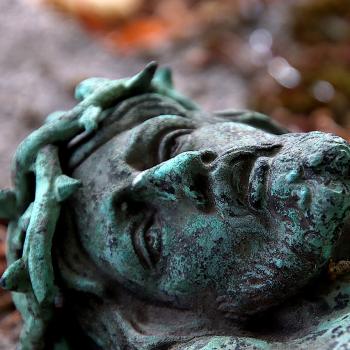The stumbling block, the obstacle to faith in Jesus, is to become infected with shame about being a follower. Children are unabashed admirers of adults; their following us is total. They imitate us in words and intonations, in gestures and behavior, in likes and dislikes. Unfortunately, we can infect them with our shame as well. In our daily interactions with children, we may find ourselves insisting on our own greatness, asserting our power to conceal our own childlike need and dependency from ourselves and from them. This is the realm of the power struggle which, if too persistent a part of a child's life, damages a child's ability to have faith in the benevolence of adults and therefore in the benevolence of all models, including Jesus.
This is why Jesus responds with his dramatic warnings of woe to the world, which I referenced above, more of which appear in the following verses. Matthew follows the warnings with the Parable of the Lost Sheep, a parable I think we read too metaphorically. This story contrasts the children whose faith in Jesus has not been harmed with the one child who has been caused to stumble. Please notice how the ninety-nine, confident that Jesus would never abandon them, are able to wait patiently and calmly for him to return. The lost sheep is the child who has been caused to stumble and so has lost his ability to follow the Good Shepherd.
"Take care that you do not despise one of these little ones; for, I tell you, in heaven their angels continually see the face of my Father in heaven.
Let us inhabit the space of passing on the faith with the humility of a child, without shame at our dependence, and without grasping after greatness. For it is the will of our Father that not one of the little ones entrusted to our care should be lost.




